By Rick VanSickle
The wine just keeps on flowing. Don’t know about you, but I feel like we’re all making up for lost time during the COVID years.
In this Canadian Wine Report, we venture west to the Okanagan Valley for a tasting of the bio/organic wines from Sperling Vineyards, then to Ontario to taste new wines from 16 Mile Cellar, 80x Wine Co. rosé, the new low-alcohol, low-sugar wines from Diamond Estates, a couple of value Chardonnays from Henry of Pelham, When Pigs Fly rosé, and our picks from the July 16 Vintages report featuring Cloudsley, Kacaba and Speck Bros. But first …
Sperling Vineyards
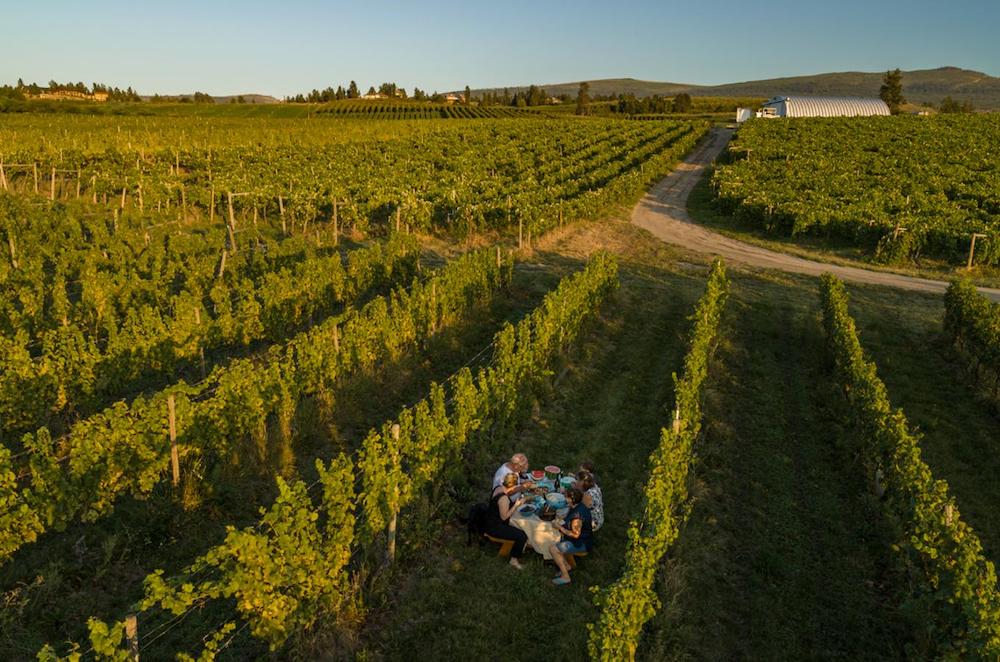
I know what you are thinking, but Rick, you said you weren’t writing about B.C. wines any longer. True, but wines sometimes just find their way to my door and I am not one to send wine back. I have tasted the biodynamic, organic wines from the regenerative farming practises of Sperling Vineyard in Kelowna.
The four-generation project is farmed from high elevation slopes and mineral rich soils on the east benches of Kelowna. The wines are made by Ann Sperling and Peter Gamble, well known to Niagara wine lovers through Southbrook Vineyards and various other wine projects the winemakers have been involved with, and Richard Branby.
The portfolio is one of the most exciting in the Okanagan Valley with various tiers and styles to choose from. In this report, we focus on the innovative Vision Series wines and the Heritage Series.
Here’s what we liked:
Vision Series
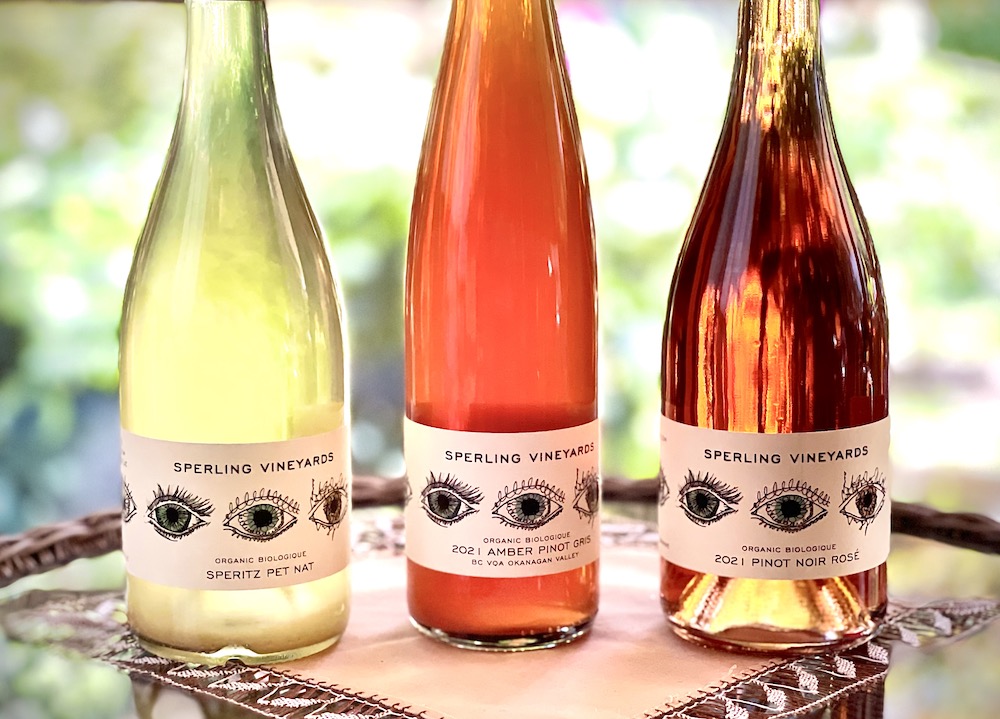
The Sperling Vineyards Vision Series (with the trés cool labels) consists of small lots, limited edition wines and is essentially a playground for the winemakers to explore and experiment with low intervention wines such as pét-nats and orange styles.
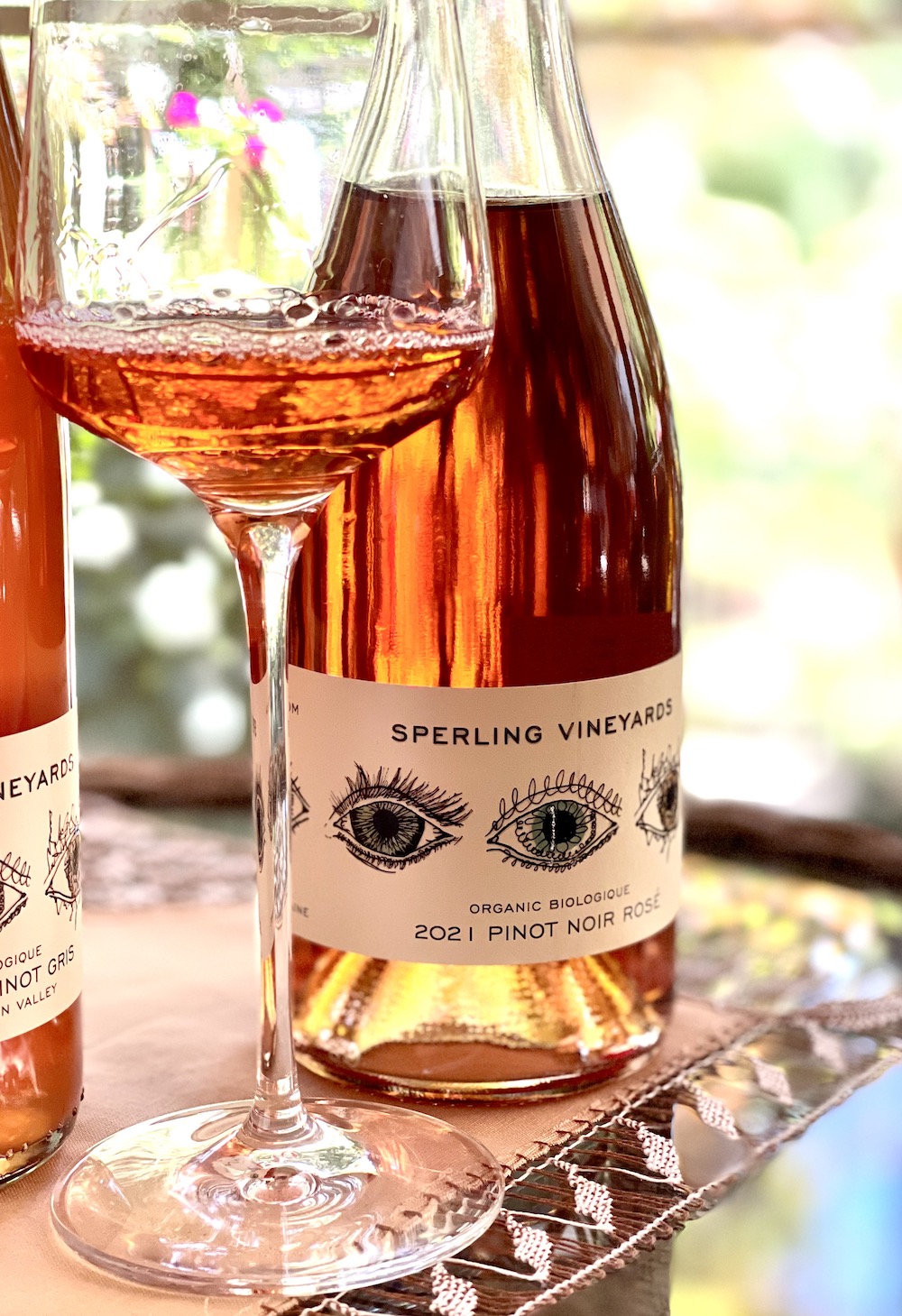
Sperling Vineyards Vision Pinot Noir Rosé 2021 ($25, 92 points) — The direct pressed Pinot Noir clone 777 grapes were wild fermented in stainless barrels and aged on the lees for four months. The nose shows fresh red berries with a touch of bramble and herbs. It’s lovely on the palate with ripe raspberries, cherries, watermelon, and subtle citrus zest on a clean and fresh finish.
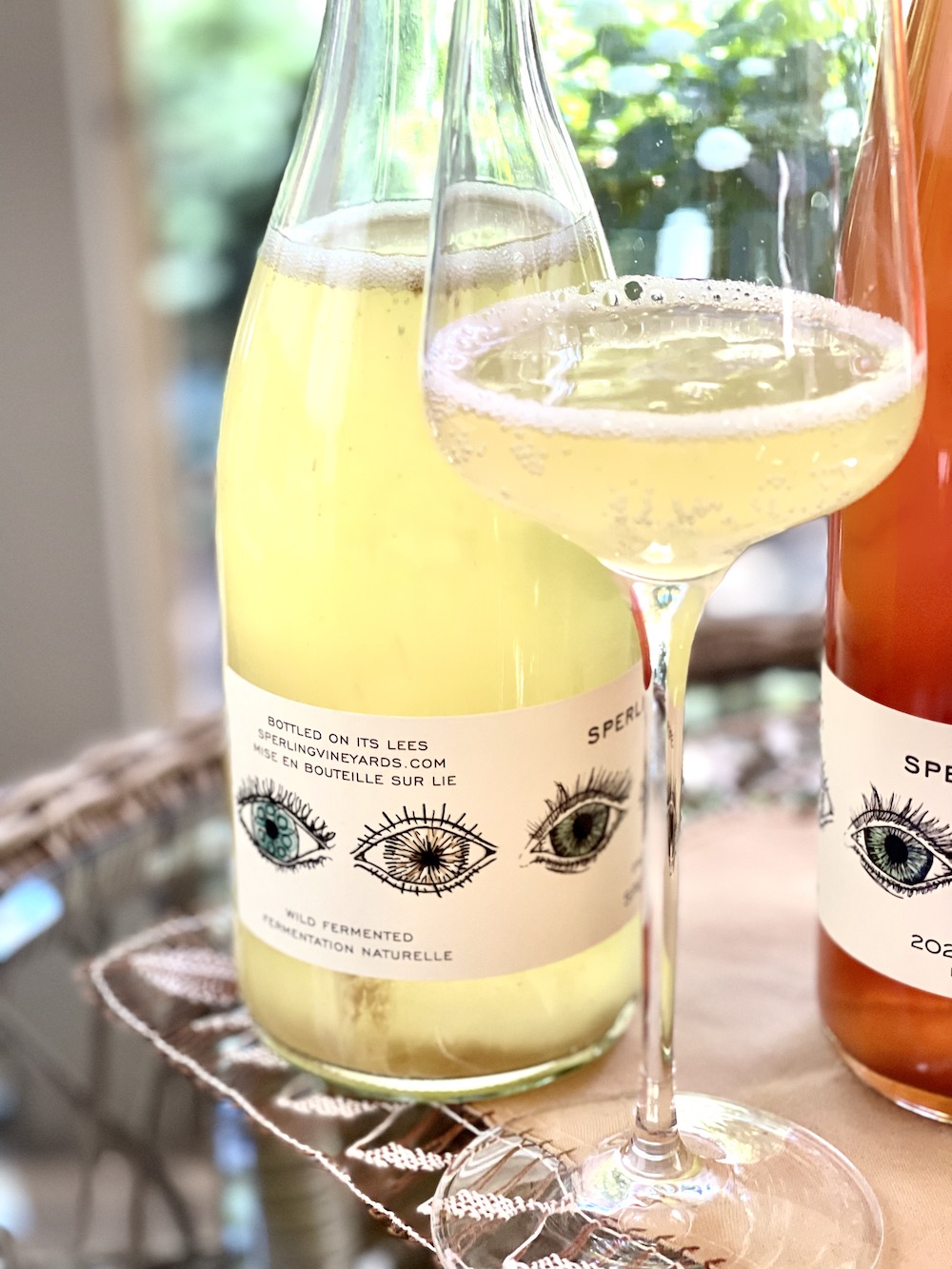
Sperling Vineyards Vision Speritz Pet Nat NV ($30, 90 points) — The blend is 34% Perle d’Csaba, 33% Bacchus and 33% Chardonnay. Each variety is harvested and pressed separately, then gradually blended into the earlier harvested variety. Pet Nat is a naturally fermented bubbly that starts with wild yeast in vat, then is transferred to bottles to finish fermenting and capture all the remaining bubbles, freshness, and goodness. No fining, nor filtering is done and this one is bottled on the lees. It shows a cloudy, pale-yellow colour in the glass with a nose of fresh pineapple, grapefruit, creamy lees notes, lemon tart, melon, and earthiness. It has energetic effervescence on the palate, tart citrus, juicy lemon, pineapple and mouth-watering acidity and energy through the finish.

Sperling Vineyards Vision Natural Amber Pinot Gris 2021 ($32, 89 points) — This Pinot Gris orange wine is whole cluster fermented with wild yeast, and undergoes wild malolactic conversion, taking sugars and malic acid to complete dryness. The must is pressed and left to settle, rather than fining or filtering, and no additives, such as sulphur, is added. It’s bottled on the lees. The nose is all about the wild red berries, cranberries, guava, and earthy/savoury goodness. It’s juicy and fleshy on the palate with tart red berries, rhubarb, savoury notes, a meaty/earthy feel, and electric acidity driving the bus on the finish.
Heritage Series
The Heritage series honours the decisions of the past in the location of the vineyard and varietals planted.
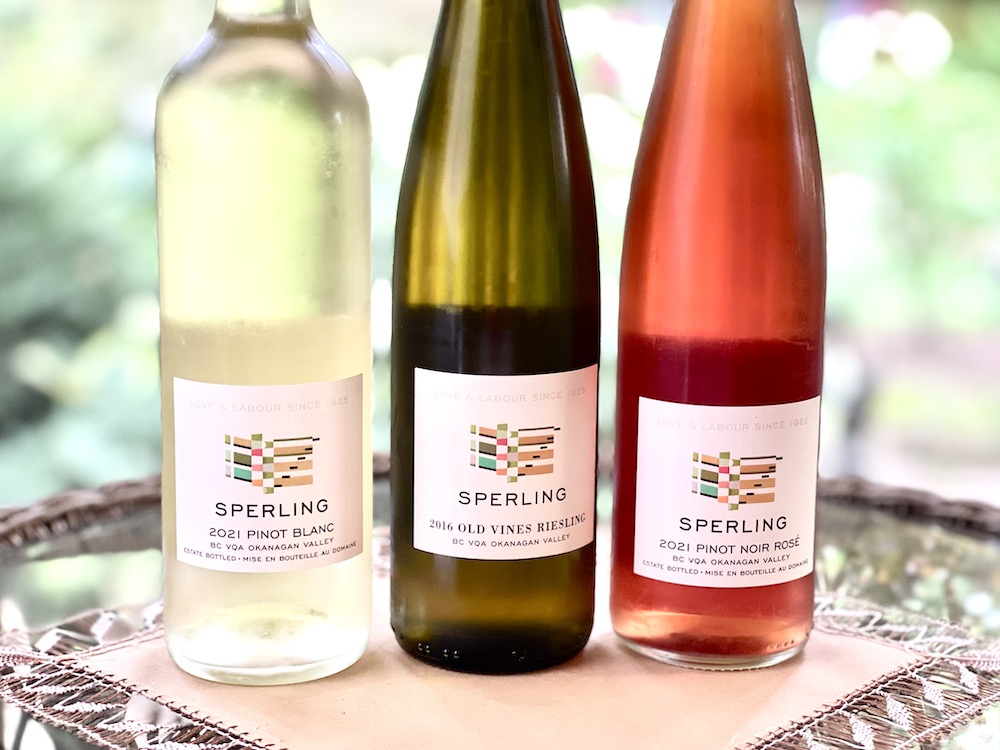
Sperling Vineyards Heritage Pinot Blanc 2021 ($21, 89 points) — From estate vines planted in the 1980s, the skins were soaked for four hours before being pressed. It has an inviting nose of melon, apple, fuzzy peach, and a melange of citrus fruit. It’s pure and vibrant on the palate with zesty citrus notes, apple/quince and a juicy, lifted finish.
Sperling Vineyards Heritage Old Vines Riesling 2016 ($35, 94 points) — This is the estate’s flagship wine in the portfolio, and always one of the top Rieslings produced in Canada. It is not released until two years in the bottle has passed and has 10.4 g/l of residual sugar and 11.5 % abv. What a beguiling nose of stony minerality and developing petrol notes then grapefruit, lanolin, and lime in a layered, complex style. The intriguing petrol note on the palate is buoyed by wild honey sweetness followed by lemon-lime, pine needles and savoury notes with a textured, complex, and vibrant finish. Showing beautifully right now but can cellar 5+ more years.
Sperling Vineyards Heritage Pinot Noir Rosé 2021 ($22, 91 points) — It shows a deep magenta colour in the glass with an inviting nose of summer raspberries, cranberries, dark cherries, and herbs. It’s dry and lifted on the palate with a melange of red berries, touch of earth and mouth-watering acidity.
New Mindful Wines stress
low alcohol, low sugar
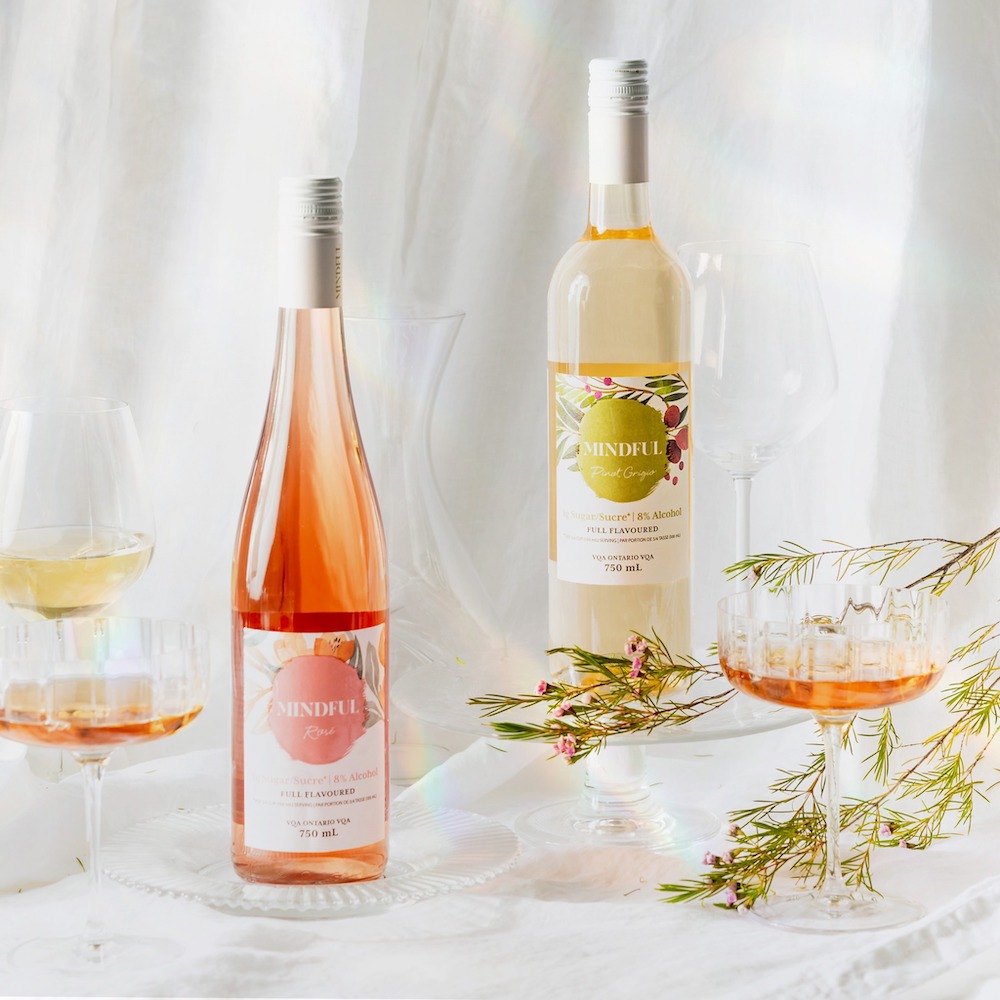
While I applaud Lakeview Wine Co. for pursuing the quest to craft low sugar/low alcohol wines for the changing lifestyle choices of wine drinkers, I also recognize that it is a tricky balancing act (quite literally).
Lakeview Wine Co.’s new Mindful Wines has just released two low alcohol wines with 100% Niagara grown grapes that they say, “are bursting with flavour and surprisingly complex,” according to a news release. “With Mindful Wines, when consumers are looking for balance, they do not have to compromise on taste.”
The two Mindful Wines, a rosé, and a Pinot Grigio, both have 8% abv (alcohol by volume) and 1 gram of sugar per 188 mL servings “yet are full flavoured because of the innovative winemaking techniques used to capture and retain varietal characteristics. These are bright, expressive wines that can be enjoyed on their own or are very food friendly and can be paired with a variety of dishes,” the release says.
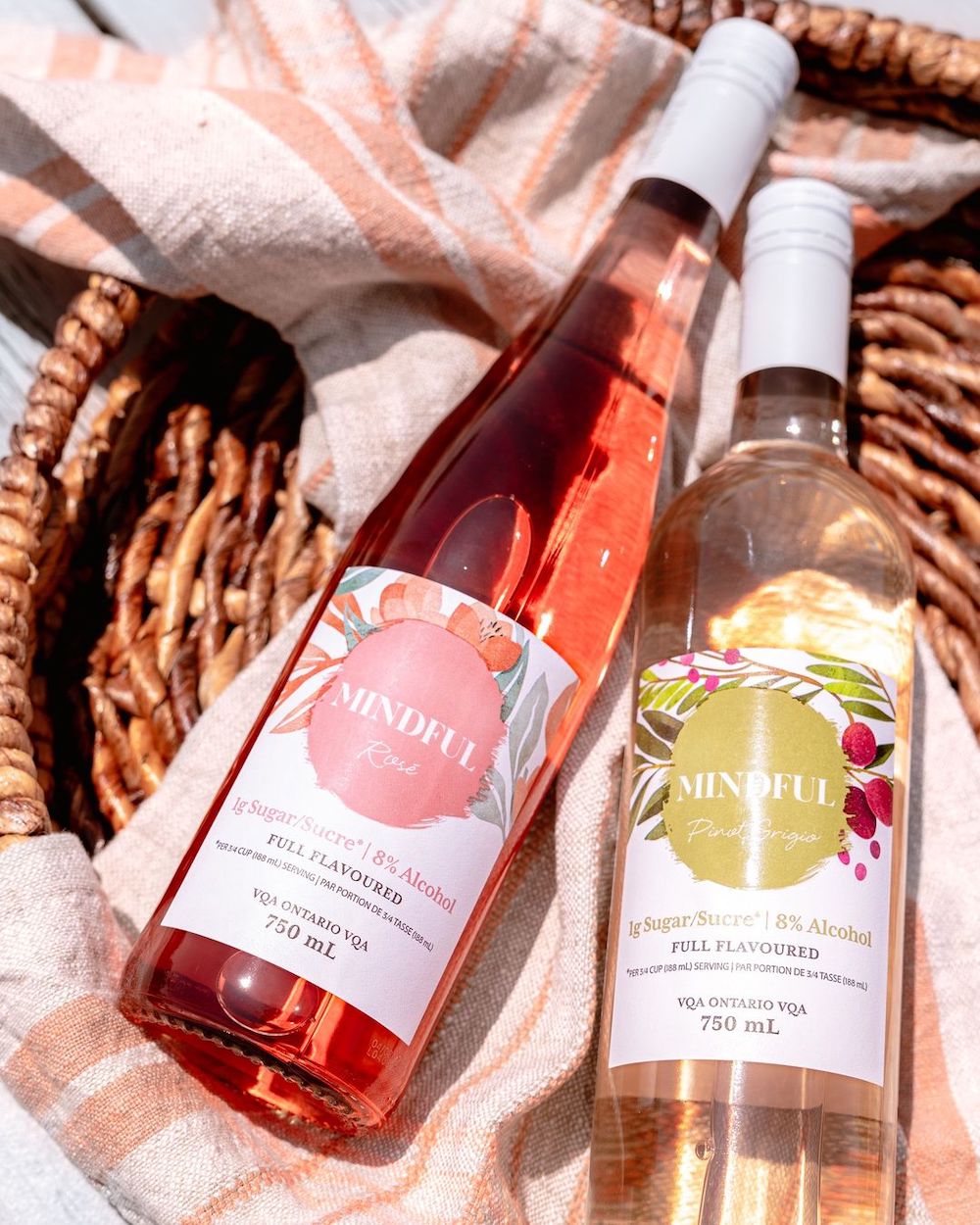
To achieve both goals of low alcohol and low sugar, Lakeview says the grapes were harvested early in the morning when the weather was cool. After pressing, the wine was fermented cool in stainless steel tanks. The wine was allowed to age on its natural lees for four months. After settling and filtration, a portion of the wine went through a reverse osmosis unit to gently extract and reduce some of the alcohol.
A couple of key things had to be implemented (or not implemented) to be labeled a VQA wine, which the two wines are. The grapes must be picked at no less than 17 brix (sugar measurement) and the minimum alcohol content by volume is 7%. To achieve the bone-dry status without reverse osmosis of the two Mindful wines, the winemaker needs to pick those grapes with minimum brix. Less ripe means less sugar, which will convert to less alcohol.
Here’s the trade-off: There is no wine without sugar. It is residual sugar that remains in wine after the fermentation of the grape must, which transforms the sugar into alcohol. But during this process, sometimes not all sugar is converted into alcohol. The winemaker must then balance the wine with the acidity. As a general guide, a wine is considered dry if the residual sugar content does not exceed four g/l (grams per litre). By comparison, a 355 mL can of Coke contains the equivalent of seven sugar cubes.
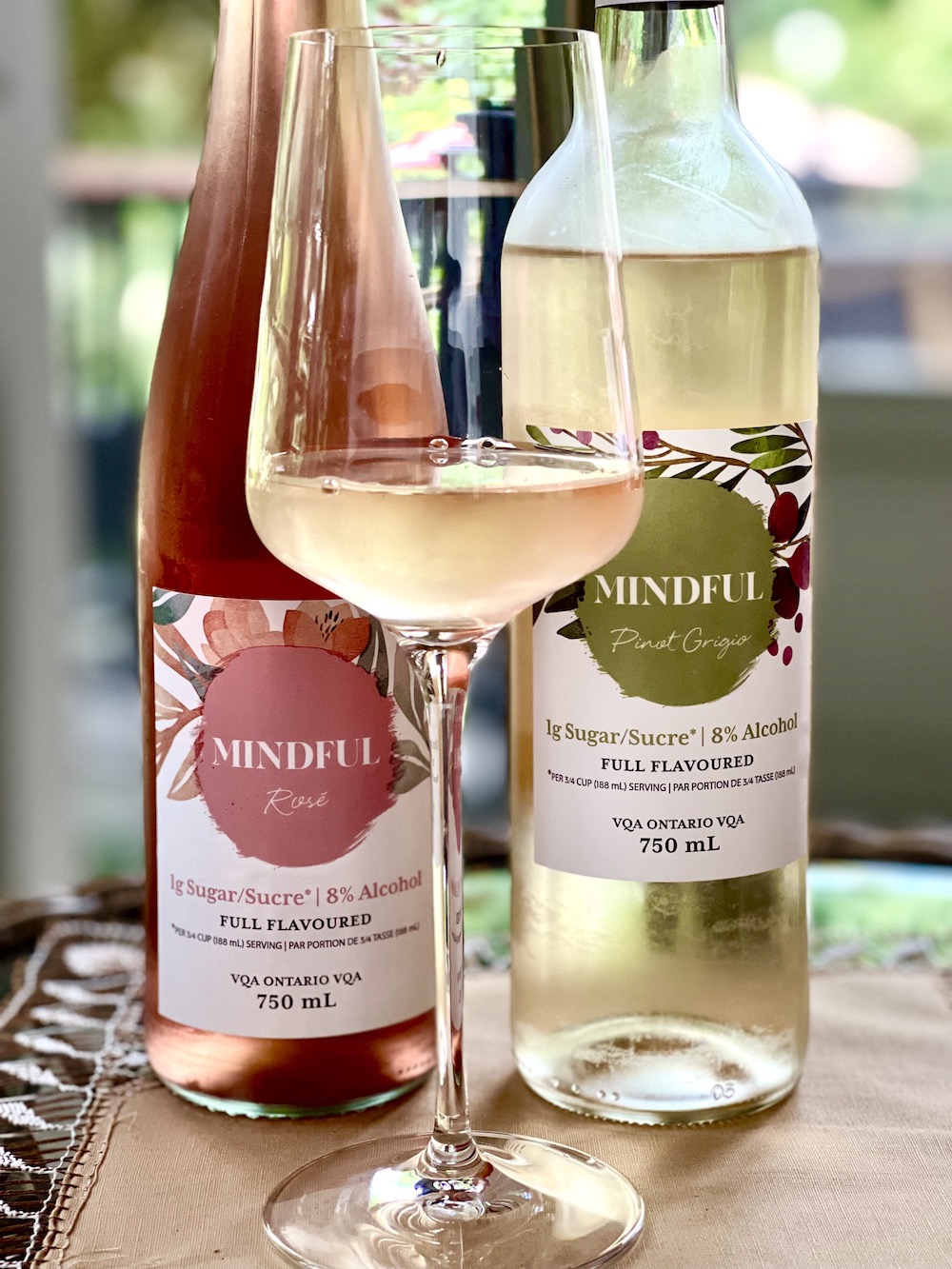
With grapes picked early, and fermentation stopped at low abv, you are left with a very dry, highly acidic wine that may not be everyone’s cup of tea.
Many VQA Rieslings in Niagara are being made in the 8-10% abv range, but they are generally made in a sweeter style. That sweeter style is tempered by high acidity to give it less of a cloying sweet sensation and more balance. A Niagara Riesling with 10-15 g/l of RS (or more) can feel quite dry on the palate with balancing acidity.
The Mindful wines, available now at the LCBO, select grocery stores and Lakeview Wine Co. (https://www.lakeviewwineco.com/site/home), are on the extreme tart and dry side of the of the pendulum and perhaps a little unbalanced to get to point of 1 g/l of RS through reverse osmosis. Balance with these wines can’t possibly be achieved otherwise if following VQA rules and with the goal of low both low alcohol and low sugar content.
My impression after tasting both wines is that perhaps a little more residual sugar would help find a happy balance to prop up the fruit flavours. But as assistant Lakeview winemaker, Jessica Wallace, says: “We set high bar to make a 100% Niagara VQA, low abv and low sugar wine that is full flavoured and delivered on varietal expectations. I think we even surprised ourselves by how great the Pinot Grigio and Rosé truly are, answering the need for consumers and giving them a quality choice that has never been available before.”
The winery intends on releasing a Merlot in the same vein at a later date.
Here are my impressions:
Mindful Pinot Grigio NV ($13) — It’s nicely fragrant on the nose with varietally correct notes of melon, peach, lemon, and crisp apple. The fruit is tart and plays a high-wire act with taut acidity on the palate. I would pair both these wines with food to balance out the racy lemon-citrus notes.
Mindful Rosé ($13) — Again, an expressive nose, with red berries, herbs, and watermelon. The palate is fresh and bone-dry with notes of sour cherries, herbs, and a racy/acidic backbone.
When Pigs Fly … again
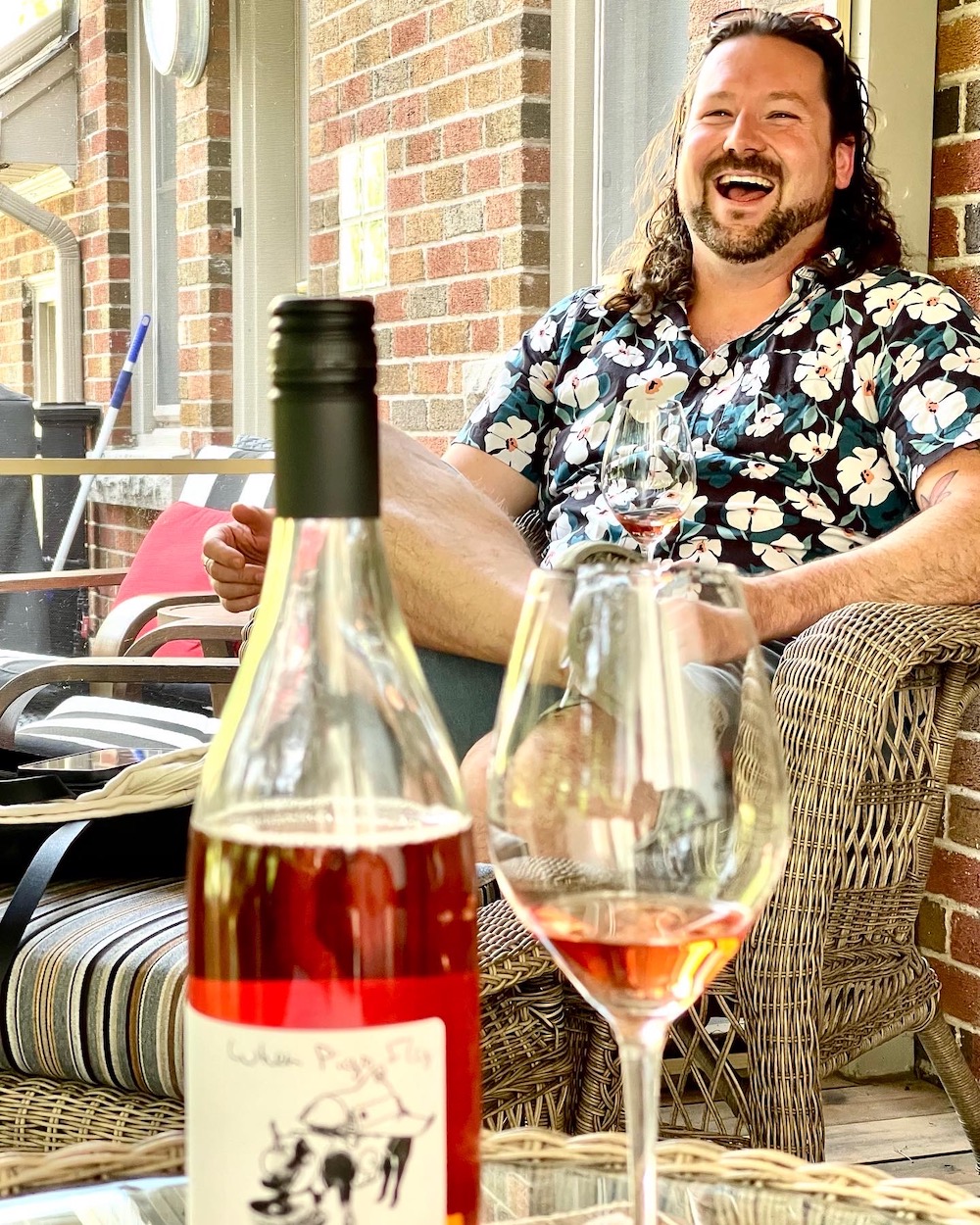
80x When Pigs Fly Pinot Noir Rosé 2021 ($22, 91 points) — This is the second tasting of this lovely rosé from wine writer (now also a marketer) André Proulx and his team at the virtual brand 80x Wine Company. The project was born in 2015 when Vadam Chelekhov, winemaker at Kacaba Vineyards, and Proulx had a conversation at a wine gala in Niagara. “Wouldn’t it be great if we made some wine together,” they mused. In short order, their first wine — a Gamay called Hair of the Dog — was launched into the world. That initial release was followed up by with When Pigs Fly Pinot Noir Rosé 2017 (which quickly found its way onto some of the most exciting wine lists in Ontario) and Dam Chardonnay 2017. Rather quickly, 80x wines (and even a cider) was a thing. The 80x team now consists of Guillaume Frénéhard, Chelekhov (co-founder with Proulx), Adam Kern and Proulx — all born in the 80s, hence the name.
I first tasted the wine from a sample bottle and thought it would be prudent to taste the finished product and Proulx was kind enough to drop a bottle off and chat the afternoon away. You can buy 80x wines at Rockway Vineyards in person or by messaging them on Instagram here, or email eightyxwine@gmail.com.
The Pinot Noir fruit is sourced from the Crispino Vineyard and Rockway Vineyard and only 300 cases were produced. It shows a pretty, pale magenta colour in the glass and vibrant aromas of dark cherries, wild raspberries, strawberry tart, and underlying citrus notes. It’s ripe but perfectly dry and textured on the palate to go with the full spectrum of red berries, watermelon, subtle herbs, and a finessed, lively finish.
New wines from 16 Mile Cellar
It has been a while since tasting the wines from this small, boutique, family-owned winery and vineyard, founded in 2010. Its name comes from the winery’s location on the 16 Mile Creek, at the foot of the 20 Mile Bench near the town of Jordan. The wines, made by Morgan Juniper, have a dedicated focus on varieties that suit the terroir: Chardonnay, Pinot Noir, and Gamay.
Here are three wines recently tasted:
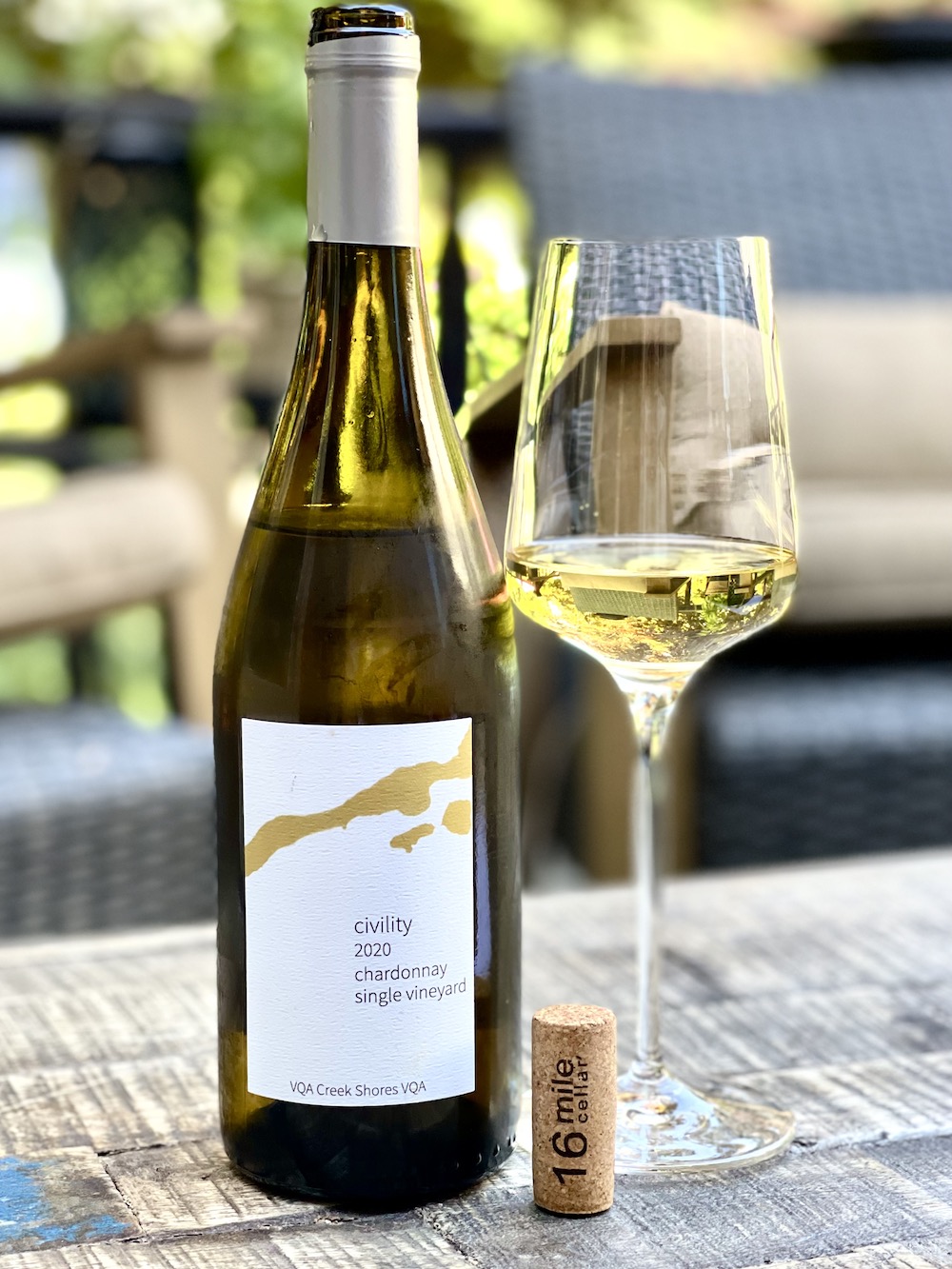
16 Mile Cellar Civility Chardonnay 2020 (not released for another year, price not set, 93 points) — This single-vineyard, estate Chardonnay from Susan’s Vineyard is whole cluster pressed, wild fermented and spends 12 months French oak. It shows an attractive golden colour in the glass and has a fresh, saline nose of ripe pear, bergamot, golden apple, and nicely integrated oak spice notes. There’s more concentration and density on the palate with a rich profile of ripe stone fruits, flinty/stony notes, a creamy (yet pristine) texture, harmonic spice notes and a fresh, lifted finish.
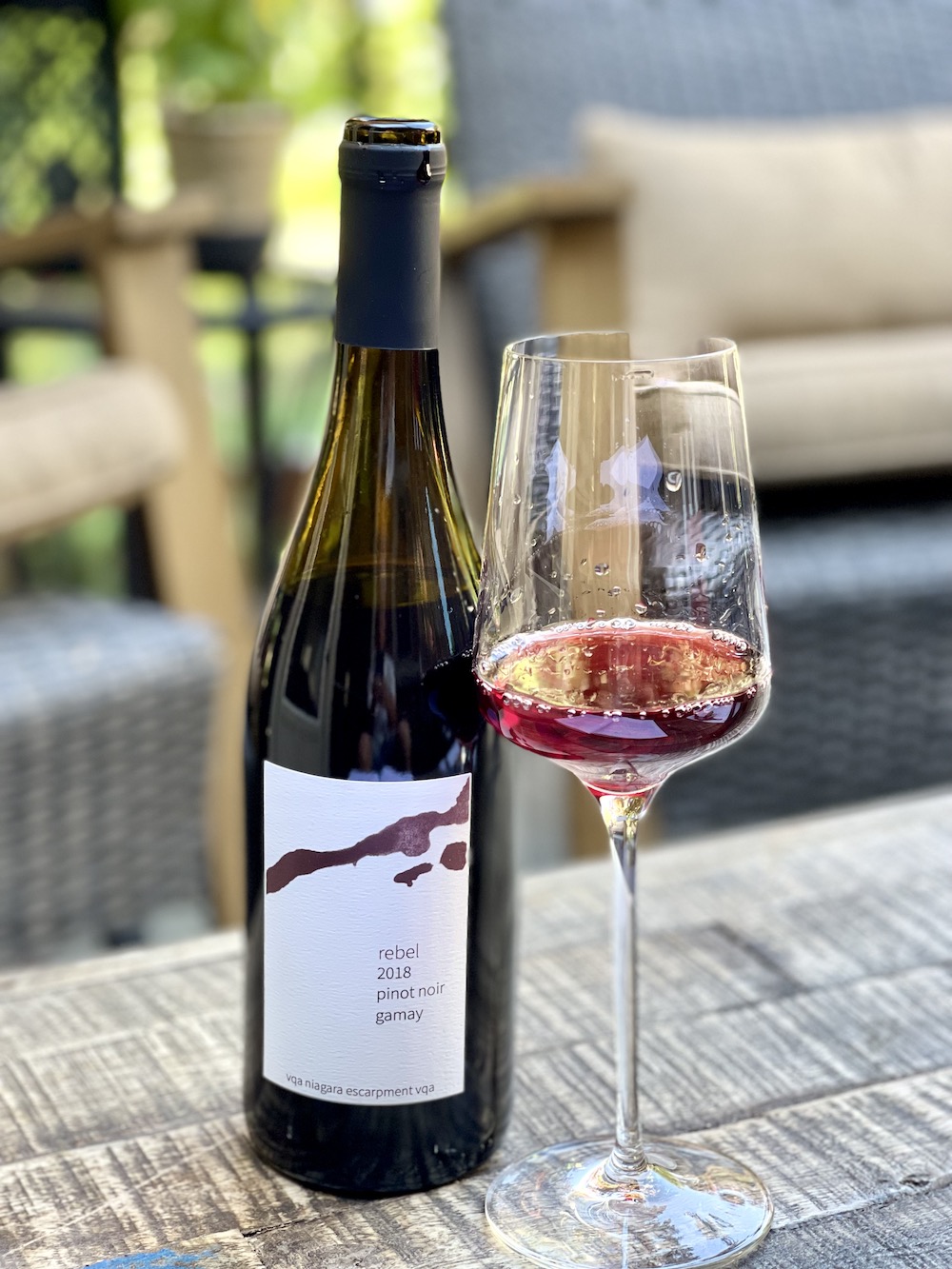
16 Mile Cellar Rebel Pinot Noir Gamay 2018 ($25, 91 points) — The blend is 75% Pinot Noir and 25% Gamay from Susan’s Vineyard and Poole Vineyard. The fruit was hand-picked and wild fermented in stainless steel tank. The Pinot Noir was aged in French Oak for 14 months and blended with 25% Gamay in stainless tanks. It was bottled unfiltered. The nose shows brambly red berries, plums, pine forest, woodsy/savoury notes, and subtle spice notes. It’s smooth on the palate with nicely integrated red berries, anise, pepper and pomegranate with savoury spice notes and a lifted finish.
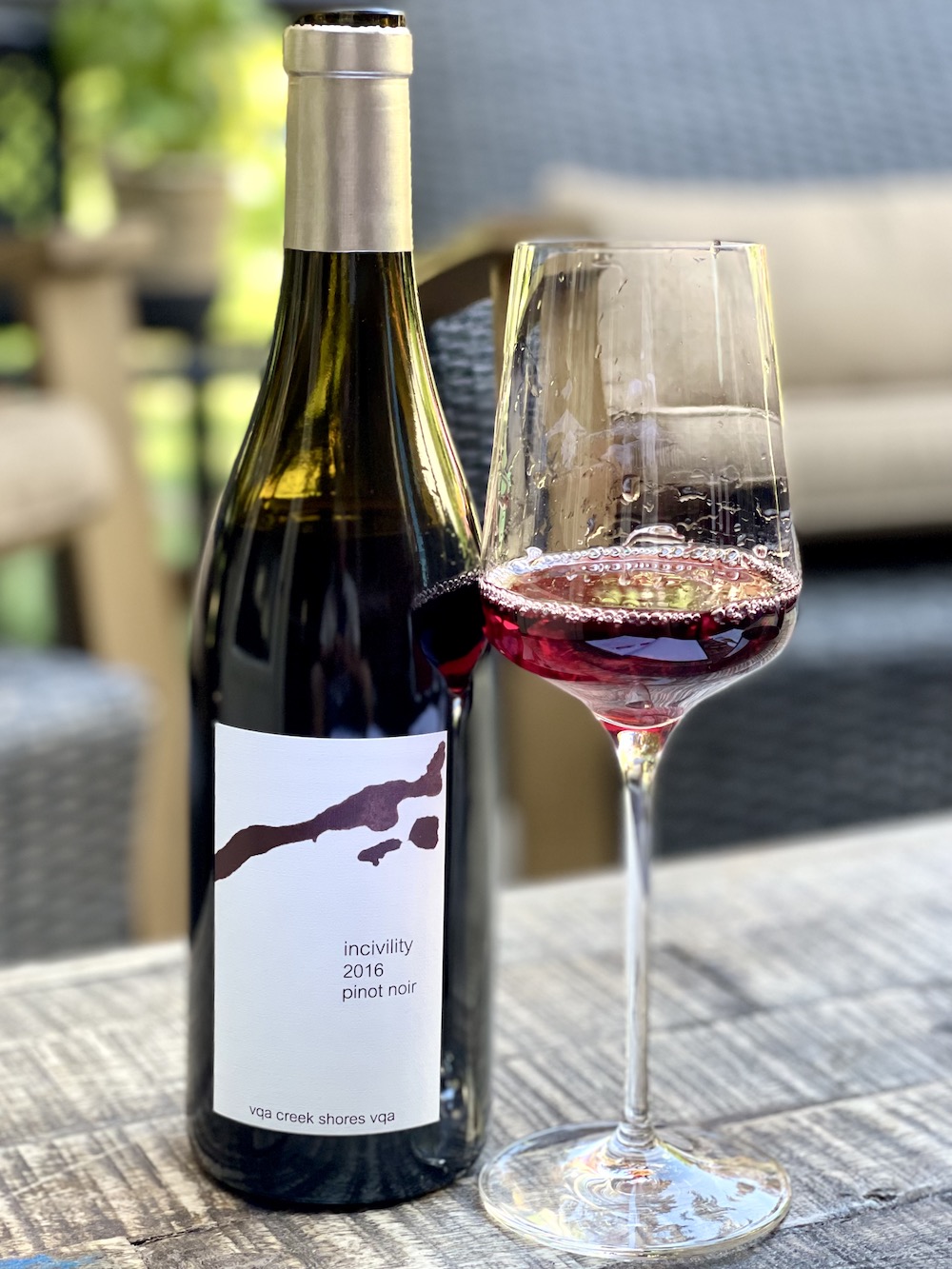
16 Mile Cellar Incivility Pinot Noir 2016 ($35, 93 points) — The Incivility is a selection of the best Pinot Noir barrels from Susan’s Vineyard. It was aged in French oak for 20 months. It has a beautiful nose of red berries, elegant oak spices, and red currants. It has a floral/perfumed notes on the palate and then wild blackberries and raspberries, summer cherries, anise, a touch of earth, polished tannins, and lovely spice notes through a lifted and bright finish. It’s showing beautiful right now but can cellar another 3+ years.
Good value Chardonnays
from Henry of Pelham
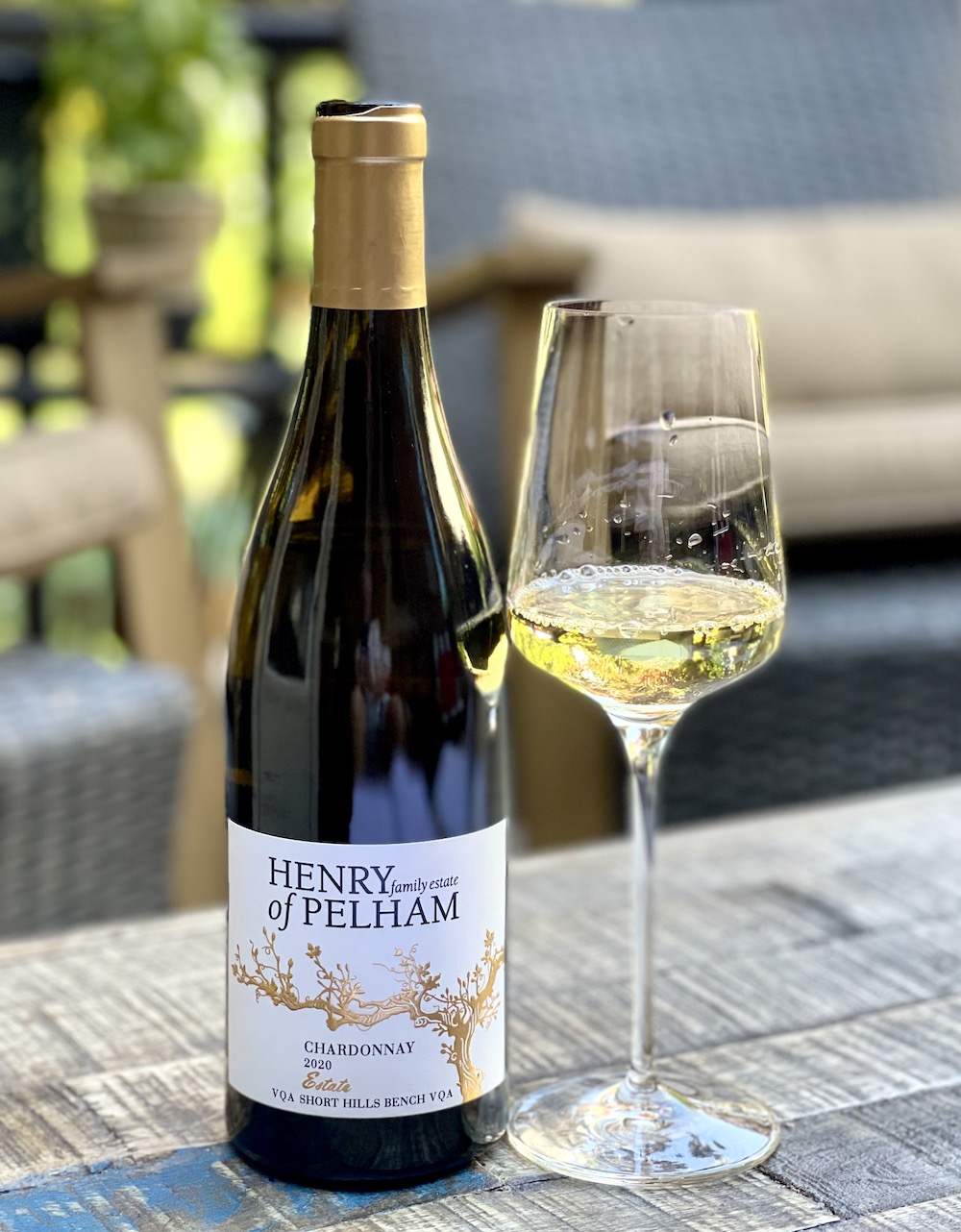
Henry of Pelham Three Hills Chardonnay 2020 ($22, Vintages, 91 points) — This bargain of a Chardonnay was fermented in French oak barriques, and barrel aged for eight months. The fruit comes from the finest blocks of estate Chardonnay on the Short Hills Bench grown on three key hills. It has a rich and generous nose of baked pear, apple tart, lemon curd and a touch of citrus zest all framed by toasty oak spice notes. It’s round and fleshy on the palate with a melange of apple/pear notes, flint, rich spices, and mouth-watering acidity keeping it fresh through the finish. A great Chardonnay for bargain hunters.
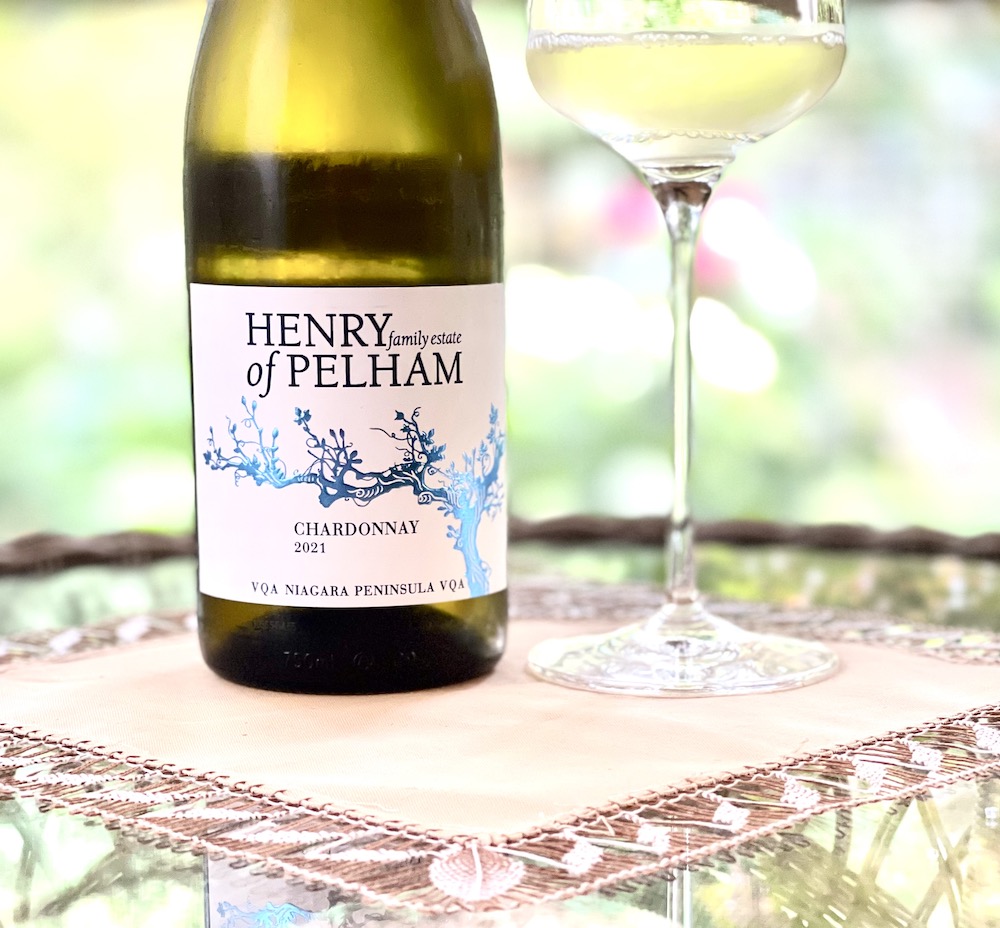
Henry of Pelham Classic Chardonnay 2021 ($15, LCBO, 87 points) — HoP sources these Chardonnay grapes from various vineyards in the region. At $15 a bottle, it truly is a smart buy if you enjoy a fresh and lively Chardonnay without the oak. It’s loaded with stone fruits, citrus, pineapple and a perky, lifted finish. Good little porch sipper.
Our picks from July 16
Vintages releases
The release coming up on July 16 has a large selection of sparkling wines, but only one from Niagara. There’s an even bigger rosé selection, dominated by Niagara rosés. For the second release in a row, no Ontario red wines are on offer. Here are picks.
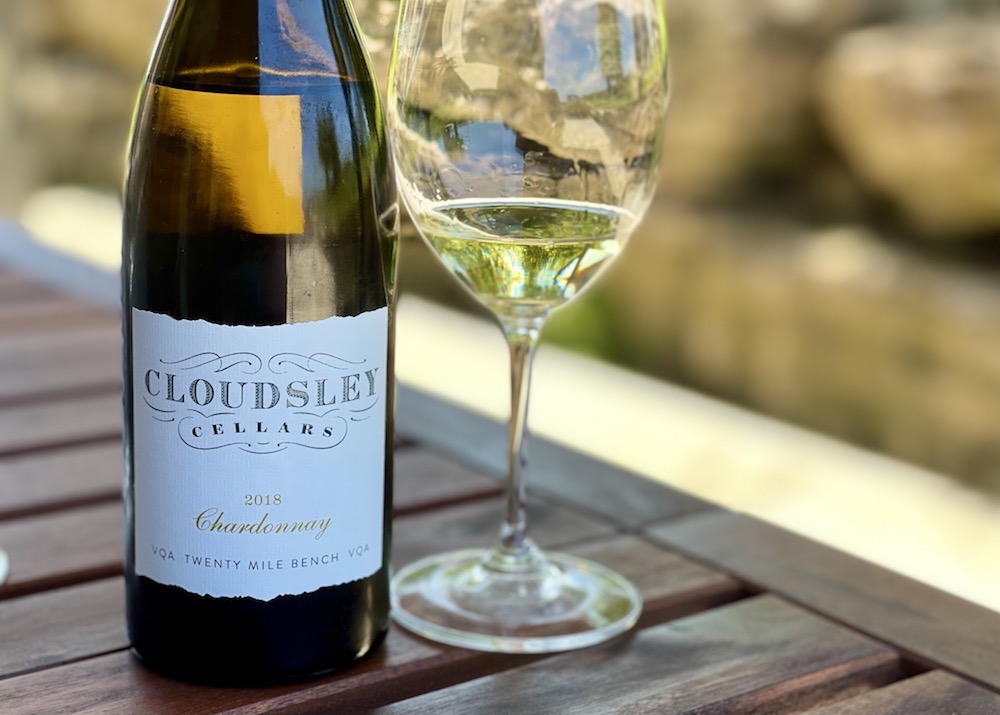
Cloudsley Twenty Mile Bench Chardonnay 2018 ($35), 92 points) — In 2018, owner/winemaker Adam Lowy decided to make only a blend of the single vineyards he usually bottles. So, this ends up being the best of the best grapes and barrels and from Foxcroft, Wingfield and Cuesta that was wild fermented and aged for 18 months in French oak barrels, 28% of which is new. This really does feel like a lot of wine for the money with an inviting, aromatic and perfumed nose of sweet pear, golden apple, stony minerality, some citrus zest and light oak spice. It’s rich and creamy on the palate but retains freshness with pear/quince, lemon zest, integrated oak spices and length through a finessed finish.
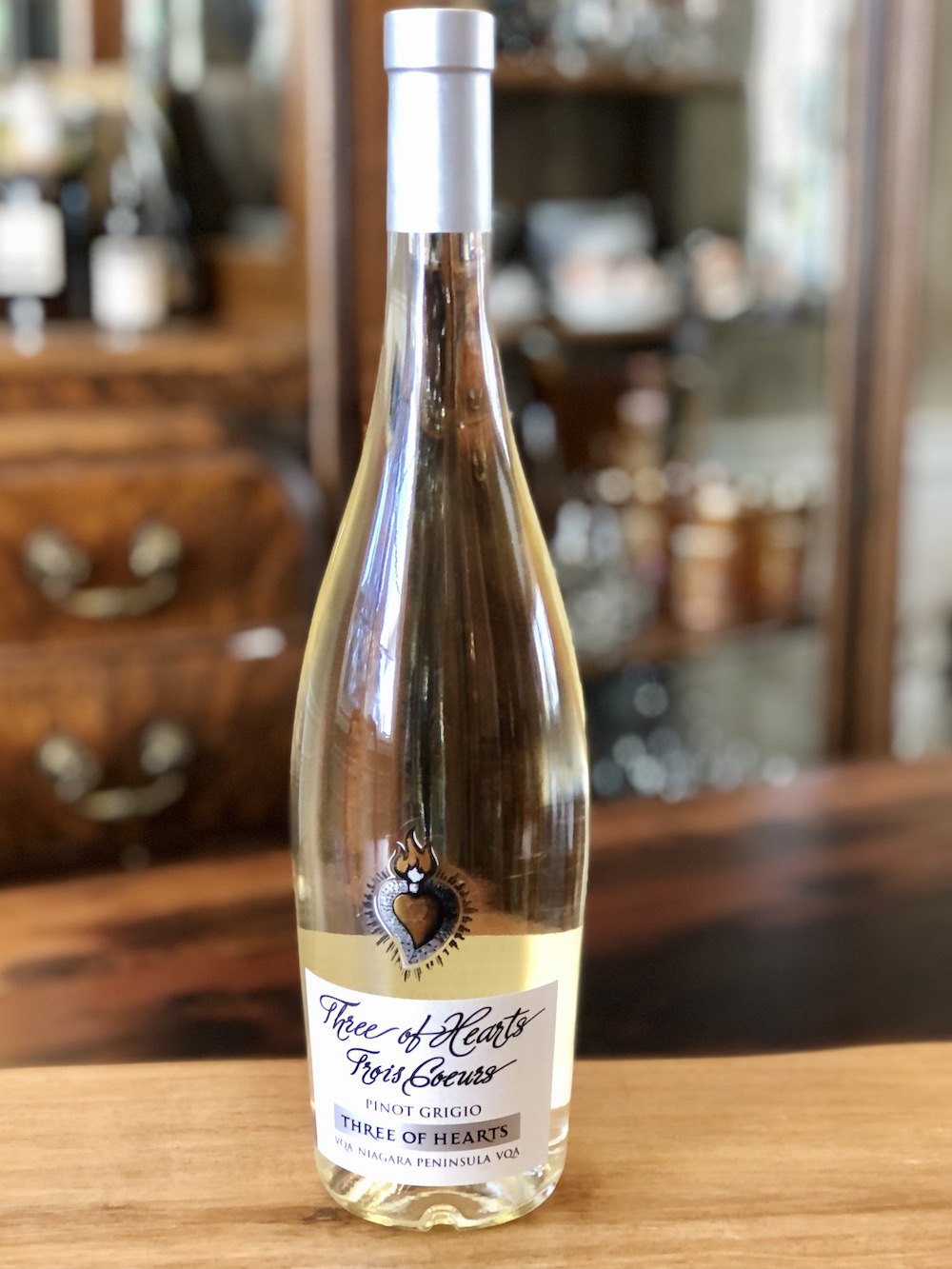
Speck Bros. Three of Hearts Pinot Grigio 2020 ($20, 87 points) — A fruity nose of peach, green apple, lemon, lime, and nectarine. There’s a pinch of sweetness on the palate to with ripe orchard fruits and a zesty citrus finish. Good value summer white wine.
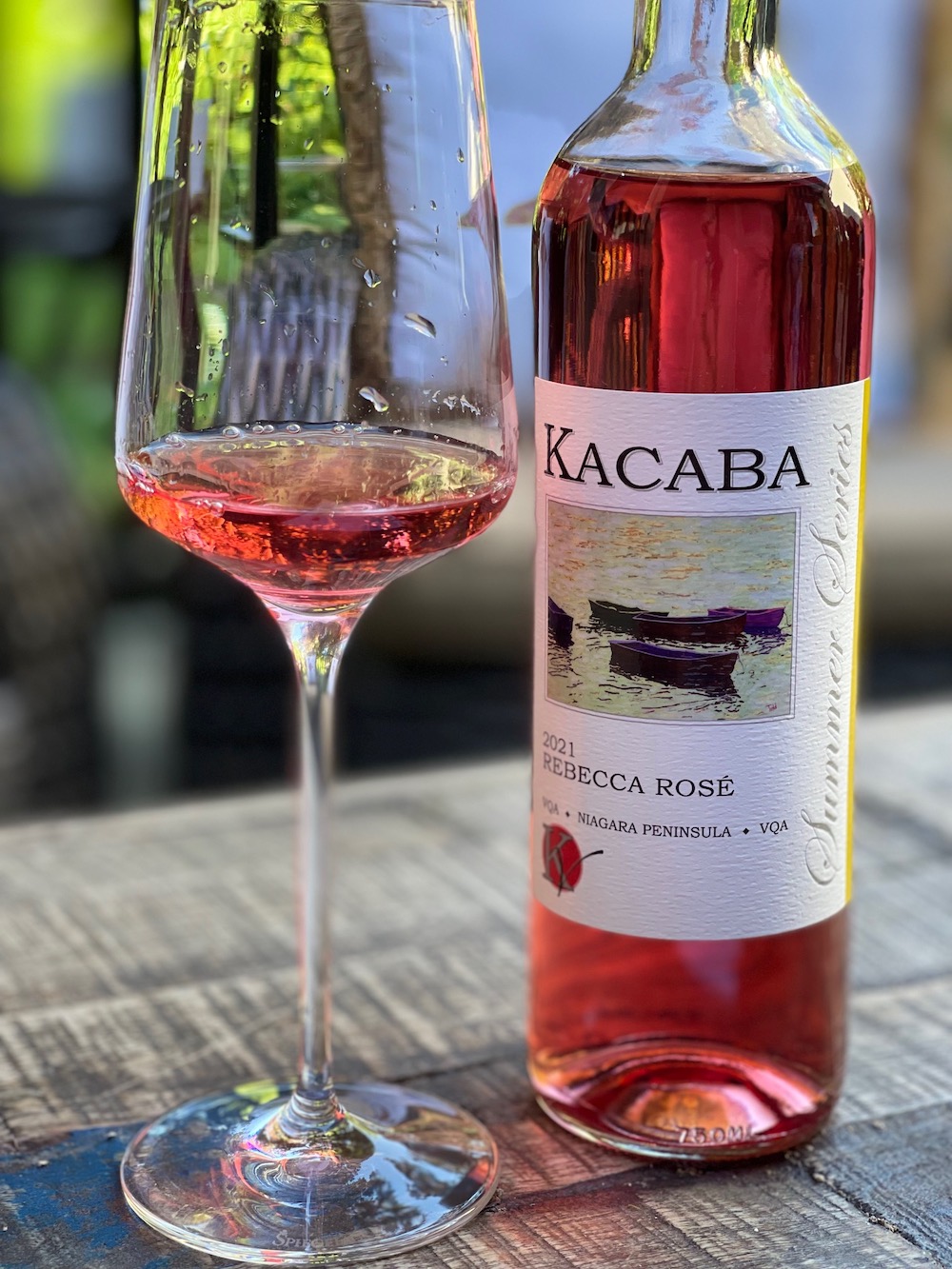
Kacaba Summer Series Rebecca Rosé 2021 ($20, 92 points) — This 100% Gamay rosé shows a bright magenta hue in the glass with a lively nose of summer watermelon, plums, strawberry tart, and candy floss. It’s juicy and ripe, but made in a bone-dry style, with a basket of strawberries, watermelon, subtle citrus, and cherries with a fresh, vibrant finish. Delicious rosé!
Also released, but not reviewed:
• The Foreign Affair Brut Sparkling Rosé ($25)
• PondView Gold Series Vidal Icewine 2021 ($20 for 200 mL)
• Bachelder L’Ardoise Niagara Chardonnay 2019 ($25)
• Closson Chase The Brock Chardonnay 2019 (Niagara, $25)
• Inniskillin Montague Vineyard Chardonnay 2020 ($26)
• The Hare Wine Co. Frontier Collection Pinot Grigio 2019 ($20)
• Fern Walk Rosé 2021 ($17)
• Fielding Rosé 2021 ($18)
• Flat Rock Pink Twisted Rosé 2021 ($18)
• Kew Vineyards Rosé 2020 ($20)
• Leaning Post Rosé 2021 ($21)
• Megalomaniac Pink Slip Rosé 2020 ($20)
• Southbrook Triomphe Organic Cabernet Franc Rosé 2021 ($21)
• Wildass Rosé 2021 ($20)


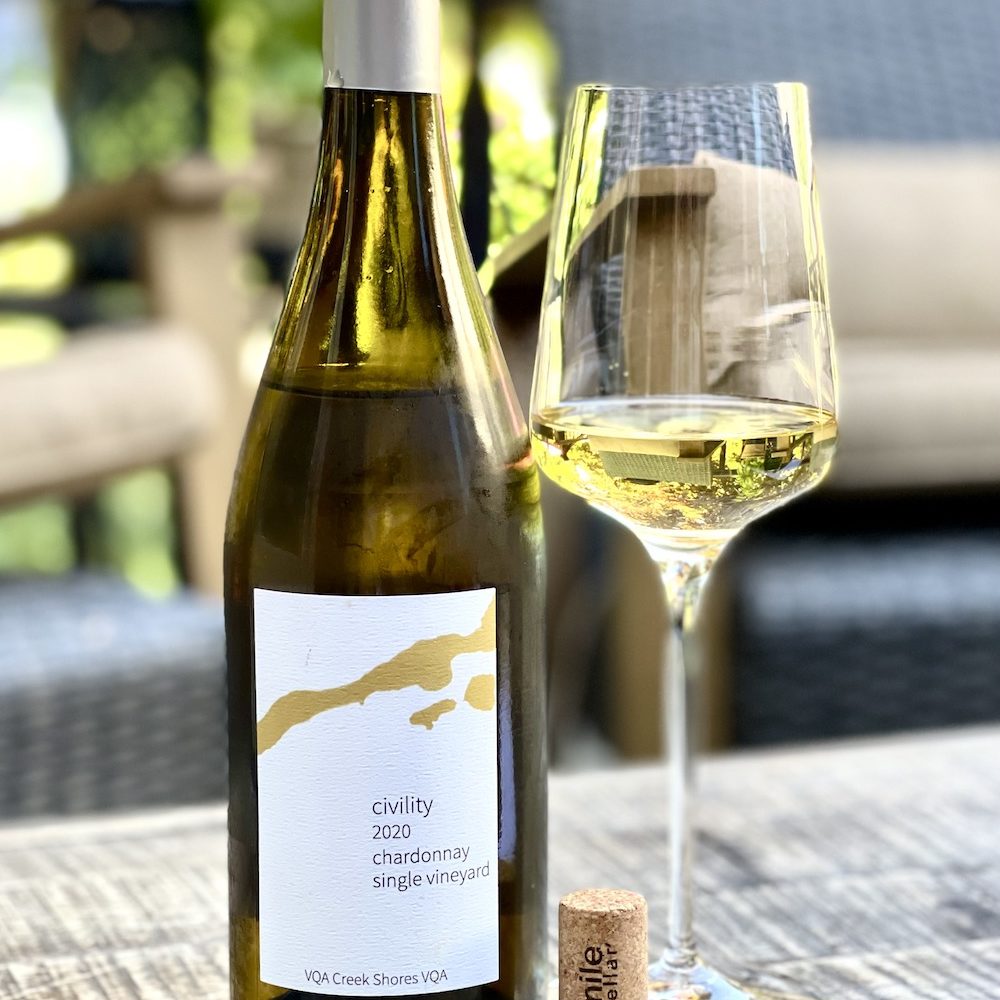




Just a few comments on low alcohol/low sugar wines you mentioned in your article. First, these wines are highly manipulated – reverse osmosis not only reduces the alcohol but concentrates the flavours – which would have been necessary if the grapes were picked at 17 Brix. Even without reducing the alcohol, these wines would have had only 10% abv. at that Brix level (naturally, without chaptalizing). Also, their advertising is a tad misleading, 1 gr of sugar per 188 ml (that’s just over 6 oz) but if you check out the technical data both the Pinot Grigio and the Rose have 5 g/L residual sugar – yes that is dry but not out of the ordinary. There are many Ontario wines under 5 g/L. According to the LCBO, 5 g/L and under is considered Extra Dry (XD) and 5 g/L to 12 g/L is Dry (depending on acidity). Just saying’ …